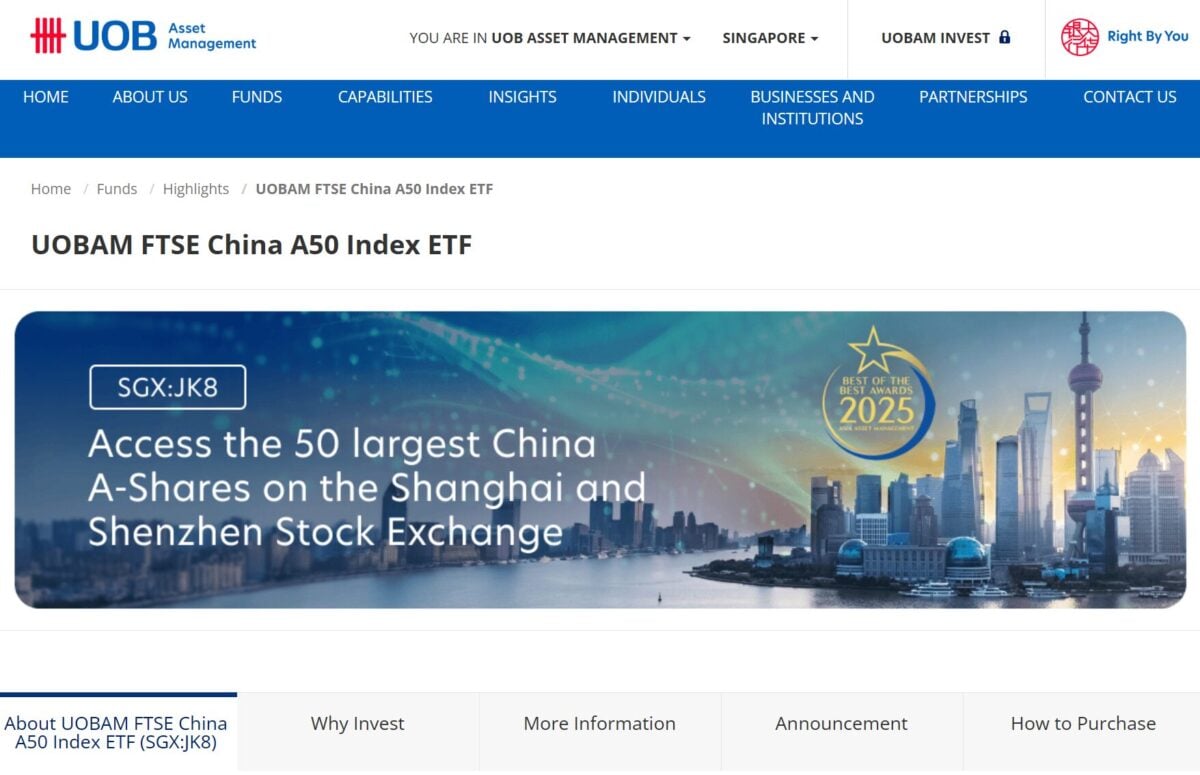
When people talk about investing into individual stocks, many of us naturally gravitate towards the hottest and trendiest stocks right now. In the current landscape, investing into technology companies involved in Artificial Intelligence (AI) and machine learning is the rage, and some investors may also be lured into cryptocurrencies.
However, one of the dangers of investing this way is that – at this point in time – no one knows which companies will be the big winners of the AI revolution in 5-10 years’ time.
A more conservative, and perhaps even more rewarding, way to invest is to think about why it might make sense to invest in companies that are older than you. That could mean they’re 30-40 years old or or even in companies that were founded in the 1800s.
Read Also: DBS (D05); UOB (U11); OCBC (O39): Singapore Banks Dividend Yield And Share Price Performance
Resilience Through Market Cycles
One of the best reasons to consider investing in companies with a celebrated long track record is that old adage that they’ve “seen and done it all”. While that saying typically refers to an individual person, it can also apply to companies.
That’s because the longer a company has been in existence, the more time it has had to truly experience the multiple “boom and bust” cycles that are normal for any stock market. In a sense, the companies that can ride through these waves are the ultimate example of the corporate world’s “survival of the fittest”. They’re the ones who have adapted and thrived in rapidly evolving business and technological environments.
For example, earlier this year, there was a study in the US that looked at the best-performing stocks since 1925 up until today. Clearly, that data set would exclude a lot of the largest technology companies that we’re familiar with today.
But it was also an interesting example of how investing the reliability of companies may serve you well over the long, long term.
Real-Life Examples Of Companies Evolving Across Decades
Within the top 20 compounders from that list are some companies which we would still be familiar with today. In 9th and 10th spots are Coca-Cola Co (NYSE: KO) and PepsiCo Inc (NASDAQ: PEP) respectively – two drinks giants that are globally recognised.
Throughout history, they’ve provided core products – like Coke and Pepsi – that resonate with consumers not only in the US but worldwide. Indeed, Pepsi also evolved and expanded into food & snacks, where it now owns brands such as Doritos, Cheetos, Lay’s, and Quaker Oatmeal.
Even within the drinks sector, both companies have had to contend with accusations that their drinks are overloaded with sugar and a prime cause of the global obesity epidemic. That has seen both companies pivot and try to offer low-sugar/no-sugar alternatives to their soft drinks and also release their own healthy drink options, such as bottled water or vitamin water.
Clearly, that has paid off for shareholders of both companies – even in recent years. Both companies are also mature today and pay regular dividends to shareholders. Even more incredibly, Coke (1886) and Pepsi (1893) were founded in the 19th century.
As a result, the companies have experienced a wide range of events and emerged from them to continue growing their businesses, from the Great Depression (1929) and World War II (1939-1945) to the Fall of the Soviet Union (1989-1991) and the Global Financial Crisis (2007-2009).
Read Also: Why Nvidia Shares Up 70% So Far in 2024 – Making It The 3rd Most Valuable Company In The World
Singapore Examples For Investors
Of course, closer to home for Singapore investors, there are many examples of resilient and battle-hardened listed companies that have seen multiple market cycles.
One of the most obvious ones that comes to mind is Singapore’s largest bank DBS Group Holdings Ltd (SGX: D05). Founded as the Development Bank of Singapore in 1968, the bank is almost as old as Singapore is itself as an independent nation.
While there have been many challenges throughout its existence, particularly during both the Asian Financial Crisis in 1997 and the Global Financial Crisis a decade later, DBS has managed to navigate these successfully.
Today, the company is paying out strong dividends – like its other two listed bank peers in Singapore – and has also been a strong long-term performer.
Read Also: Guide To Investing In Growth Stocks In Singapore
Counting On Resilience And Experience
As with any investment into individual stocks, we should be ensuring we doing our own due diligence on all our investment choices. When we do, it’s worth remembering that companies that have been through many of the global economy’s ups and downs could end up being more rewarding over the long term than many of the “hottest” stocks that we hear about from friends, family or acquaintances.
By studying the Darwinian evolution of the corporate landscape, and understanding which ones have emerged stronger over time, we can better position ourselves to invest in companies that have stood the test of time.
The post Why It Might Make Sense To Invest In A Company That Is Older Than You appeared first on DollarsAndSense.sg.











